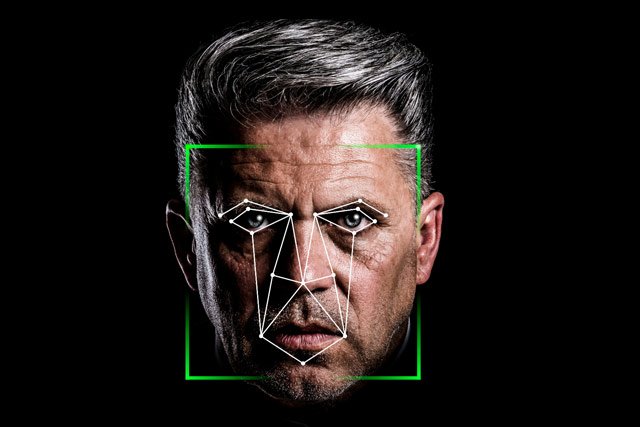
Women are already one of the most vulnerable demographics when it comes to online threats. They face a lot of stigmas online, with increased risk to their privacy and safety. It means women often have to be extra careful with what they share online.
It’s not fair or fun, but what’s even more unfair is when seemingly benign apps and websites exploit that trust for the sake of a quick buck.
Women’s Digital Privacy
Here’s a quick breakdown of what apps and websites know about digital privacy and what you can do about it.
1. Female-Oriented Apps Sharing Data:

Many apps are explicitly geared toward women, like beauty and period-tracking apps. They gather a lot of personal information. People tend to trust that these apps won’t invade their privacy for profit. But an investigation by Privacy International found that’s not true.
A lot of menstruation tracker apps share their data with third parties and even Facebook for money.
These apps have raised serious concerns over topics like consent and privacy, which they fail to comply with.
Women often share confidential health information with those apps — the kind of information they wouldn’t even share with friends. Yet now, they share that info with companies like Facebook, even if they don’t have an account.
Do This:
- Always review apps and app permissions before installing them.
- Read through their privacy policies, even if it’s boring.
- Also, use a VPN to prevent further digital footprint. (What is a VPN? It’s software that encrypts network traffic and hides the IP address of your device. That way, third parties can’t use the information they gather and link it to that IP address to profile someone, which is a real thing.)
- Disable third-party cookies on your browser.
2. Data Leaks Provide Internet Creeps with Information:

It’s often easy to pinpoint the target demographics of an app or website. For instance, an online retailer that specializes in women’s clothing or an app that adds virtual makeup both likely cater mainly to women.
Predators and creeps know this too. They often target specific platforms with the intent of gathering data.
If these apps or websites don’t have proper security measures in place, then it results in a data leak. It puts customers’ information into the hands of strangers.
One example of this is the slew of cloud-based hacks that left women reeling as their private photos and videos were exposed online. Sure, cloud services don’t cater to women only. But the fact remains that those actions did target women. Such events lead to feelings of violation and embarrassment or worse.
Do This:
- Be careful with what you share or store online.
- Don’t stop making cloud backups, but make sure to encrypt them. That way, even if someone hacks your account, they won’t be able to read the contents of your files.
Have strong passwords in place. Don’t ever save passwords in a text document or reuse them for other accounts. - Also, set up two-factor authentication.
3. Social Networks is a Hunting Ground for Predators:

Social networks, especially the likes of Facebook, had weak stances on privacy in the past. And there are enough examples out there of social media being used by criminals to stalk and contact their female victims.
Hell, most women can recall being contacted by a creepy stranger via social media at least once in the past.
While many social networks have been trying to step up their privacy game as of late, there’s often still a lot left to do. Many people often don’t know about the privacy settings available to them, and platforms take advantage of that.
Do This:
- Thoroughly examine privacy settings on social accounts.
- Make sure to disable any unwanted and invasive privacy settings, and don’t allow location permissions.
- Moreover, make your social profiles private and only exchange photos and other information with known friends.
4. Facial Recognition Tools Gather Data Without Permission:

Facial recognition might be a nifty way to open an iPhone. But it can also be a dangerous tool in the wrong hands, as this software from Clearview AI proves.
The company has come under scrutiny lately. They’d scraped the internet for over 3 billion images of people’s faces for their facial recognition technology.
According to the creators, it’s as easy as uploading a photo of someone (from almost any angle) and searching for information about them in its extensive database.
For now, most law enforcement and governments use this technology. But it does set a scary precedent. Imagine someone taking a photo of a woman they pass on the street and finding out her name or even where she studies, works, and lives.
Other platforms, like Facebook, also employ extensive facial recognition technology for their services. Think about the “Tagging” feature that helps to identify people in the photos. Most people don’t even know this labeling service is on or that they can turn it off.
Do This:
- Right now, there isn’t a lot that people can do about this. But make sure to set social profiles to private and ask friends to do the same so the technology can’t gather those photos.
- Also, check your social media settings and turn the facial recognition features off.
Conclusion
There has been a massive shift in people’s mindset towards online privacy these last couple of years. Understandably though, women have bigger concerns about online privacy than most men do.
And yet, various online companies and apps often exploit their most private data without their knowledge. It’s time we stopped this.
Take your privacy into your own hands. Review the privacy settings of every website and app you use. If you find conditions you don’t like, stop using those services altogether. Disable third-party cookies, subscribe to a VPN service and download a private browser.
There are tools and tricks out there that can help you protect your privacy. Use them.






